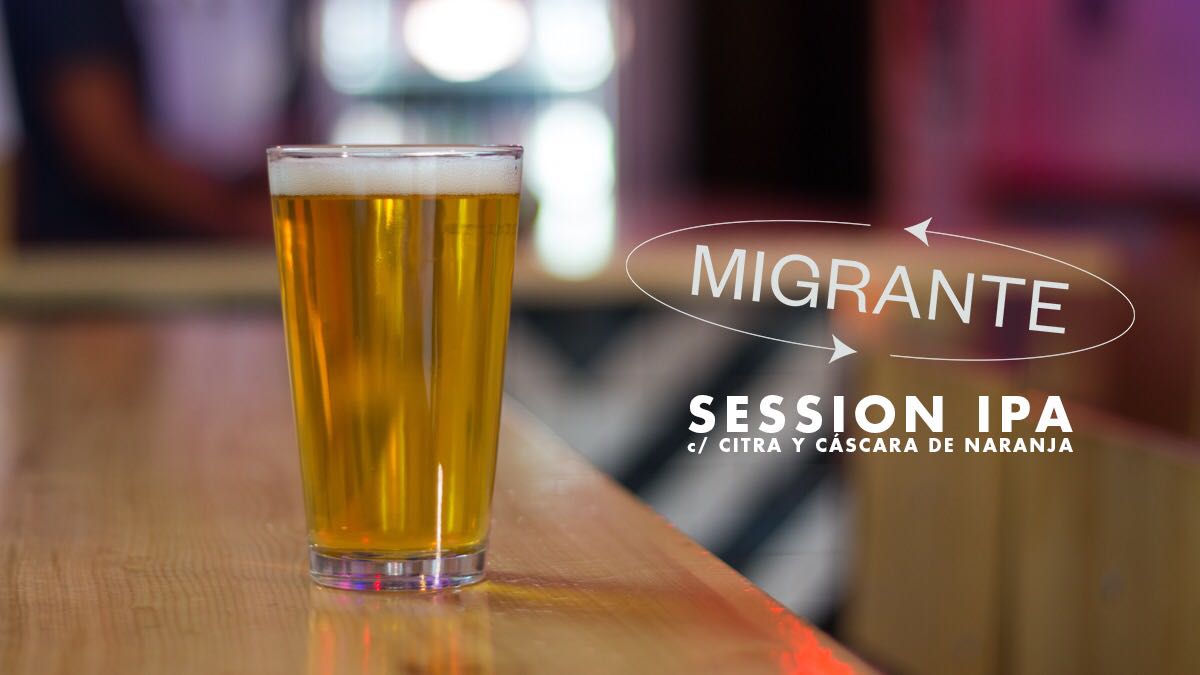
In Tijuana, migrant shelters are overflowing, and the expectation is that a groundswell of asylum-seekers is still to come. People are scrambling to welcome newcomers; they could use a drink. Tijuana craft brewery Insurgente is here to offer just that. Earlier this month, Insurgente (translation: Insurgent) began sales of its Migrante (Migrant) beer.
Some 90 percent of proceeds from Migrante IPA—virtually everything but production costs—go to support the borders’ burgeoning migrant communities, according to Ivan Morales, who founded Insurgente with his brother Damian in 2010.
The Morales brothers aren’t making any profit on Migrante beer. Neither are the local breweries and taverns that sell it. “There is no business aspect to it at all,” Ivan Morales tells Pacific Standard, “We feel that we have a responsibility to our community and to our city … to give back.”
A pint of Migrante typically goes for about 50 pesos—a little over $2.50 in American dollars—at Tijuana taverns, where craft beers are growing in popularity. The funds will go to a local non-governmental organization that aims to help new deportees find jobs within the first few weeks of their arrival in Mexico; and to a documentary film currently in production, on the daily lives of a small community of street-dwelling migrants. The goal of the film is to humanize these people, and to start conversations around struggles they face.
Insurgente’s new beer is one of several creative responses to a growing number of migrants in the border town. Several documentary and musical projects are already underway, some of which include the town’s freshly arrived Haitian migrants. The local government has established mechanisms for newcomers to find lawful employment, in a town known for its informal sector. Tijuaneses—despite pre-existing problems with employment and the availability of social services there—have welcomed the newcomers with open arms. It is very much in the culture here both to handle adversity with flair and to welcome outsiders, Morales explains.
“The oldest families in the city are only five generations old. It’s a young city. Most of the people that comprise the city are immigrants—from Mexico and Central and South America. We’re used to having people from all over the place come here and integrate into the society,” he says. “The idea of this sort of movement of people between spaces and borders is so ingrained in how Tijuana works that I feel it makes us more empathetic with these people wherever they come from.”
Insurgente’s beers are for a sophisticated palate—its various lines include the sort of high-brow ingredients one typically finds in Brooklyn. The Migrante is no exception: It features a citrusy, lower-alcohol IPA with notes of orange zest—very hoppy but light, Morales says. But these beers are sold at a fraction of the cost and are 10 to 20 pesos less than the average Tijuana pint.
“We made it affordable so people can feel less of a burden and help out more,” Morales says.
And the response so far has been powerful, Morales says. At one establishment, a whole Migrante keg sold out in one day.
Morales believes it’s a testament not just to Tijuana’s appreciation of good beer but of its characteristic empathy for its ever-present outsiders.
Almost immediately after President Donald Trump’s election, before his ongoing push to undo legal status for a number of documented migrants and deport many of the undocumented, there was a sudden surge in migrants populating Mexican border towns—people hoping to cross before Trump enacted immigration policies. Thousands poured into Tijuana, some paying coyotes—human smugglers tied to local cartels—thousands of dollars to attempt a border crossing. And then there were new arrivals from Haiti, who after traversing several Latin American nations on foot hoped to attempt to cross—legally—into the United States to apply for temporary protected status (TPS), a designation that allows escapees from political and natural disaster to remain in the U.S. Washington canceled Haiti’s TPS designation in November, despite warnings from analysts of Haitian affairs who argue that returning Haitians in the U.S. amounts to an inhumane act that could cripple what little infrastructure the country has built in the aftermath of what appears to be a constant barrage of natural and manmade disasters.
Following the cancelation of TPS designations for Haitians, many already living in the U.S. poured over the northern border to Canada. Late last year, Canadian immigration officials told Pacific Standard they were struggling to cope with a surge of new arrivals, housing many in Montreal’s Olympic stadium while immigration authorities hurried to process their applications for asylum ahead of Eastern Canada’s notoriously inclement winters.
Trump is visiting San Diego this week to look at prototypes for a border wall he insists Mexico will fund. While debate over funding rages on, it seems the U.S.’s immediate neighbors are already footing the bill for ramped up deportations and the discontinuation of protections for certain classes of immigrants. Community organizers in Tijuana recently told California’s Mercury News they were bracing for new arrivals amid heightened deportations. And while there may be some concerns over logistics—overcrowding, a fatal flu season, the scarcity of resources—the Morales brothers and many others are turning their rapidly growing city into inspiration for new expressions of empathy.




